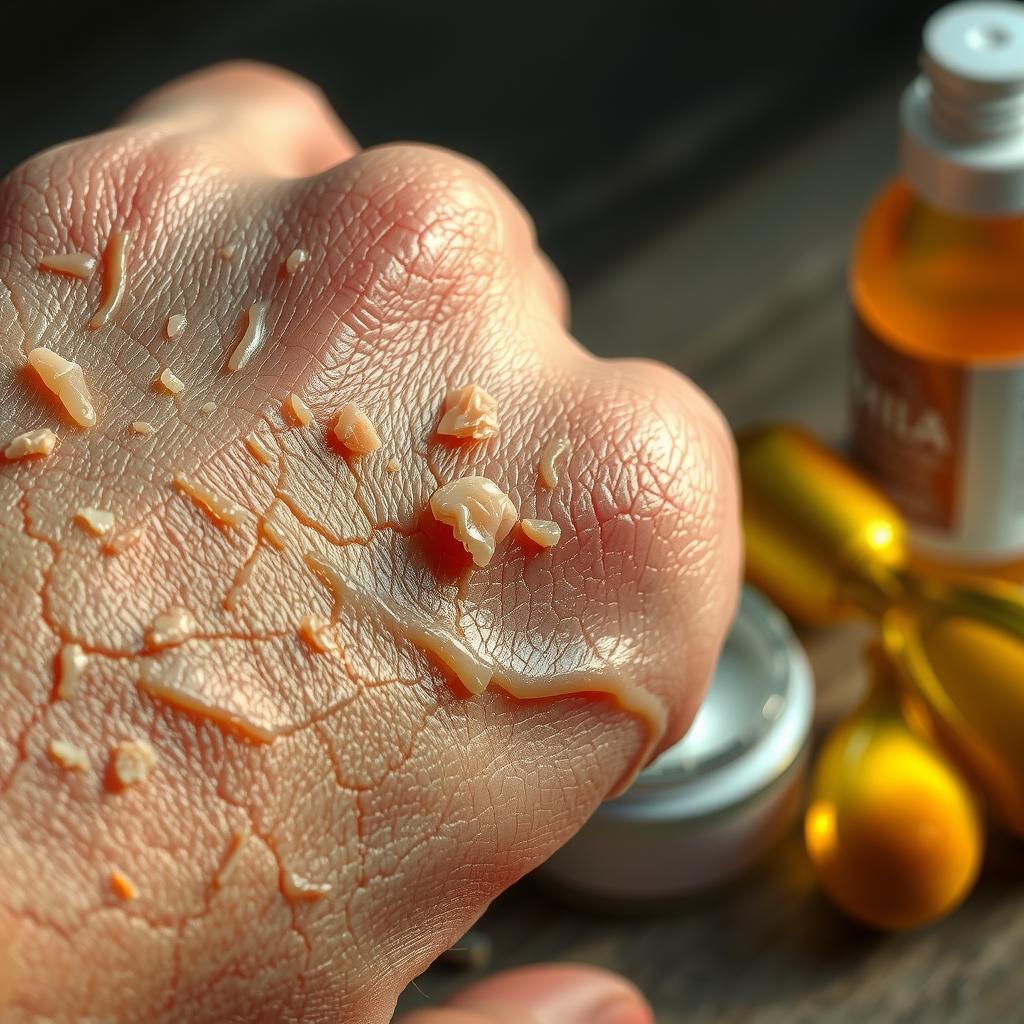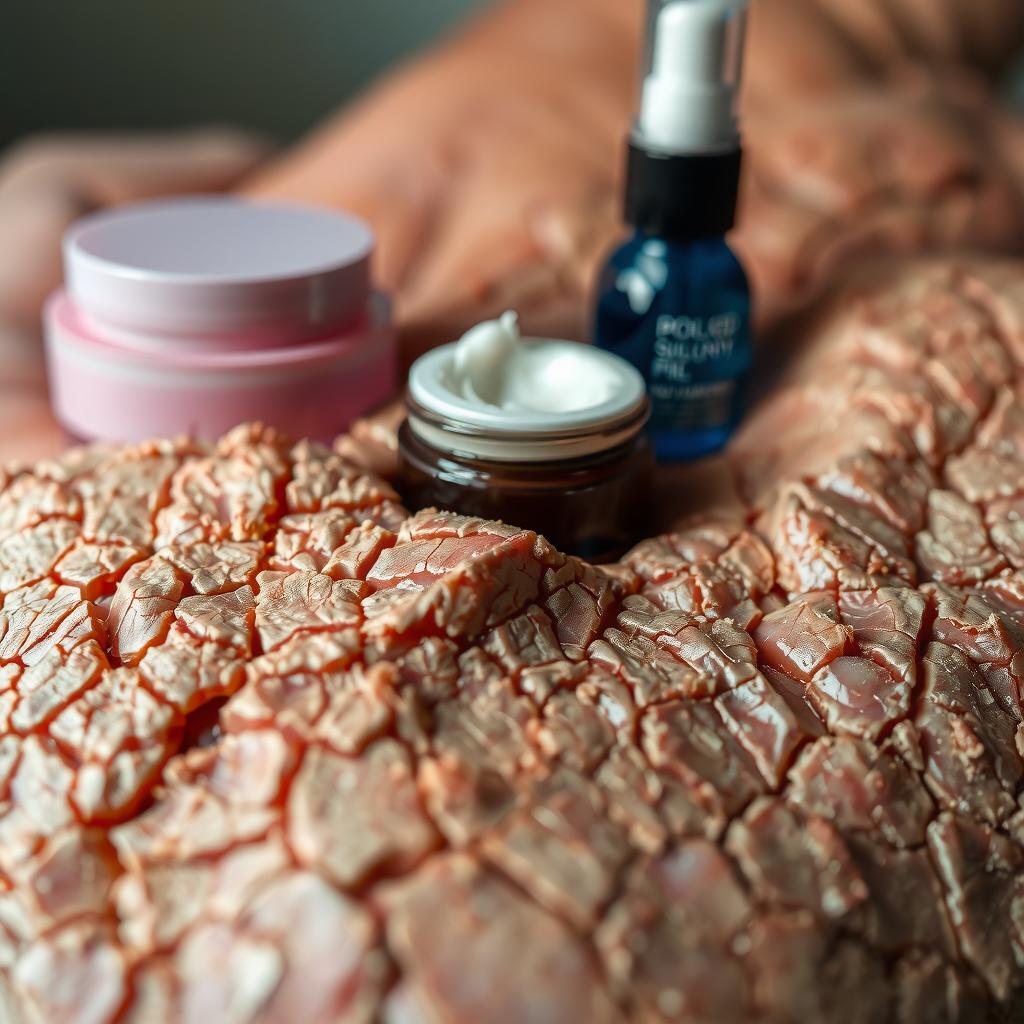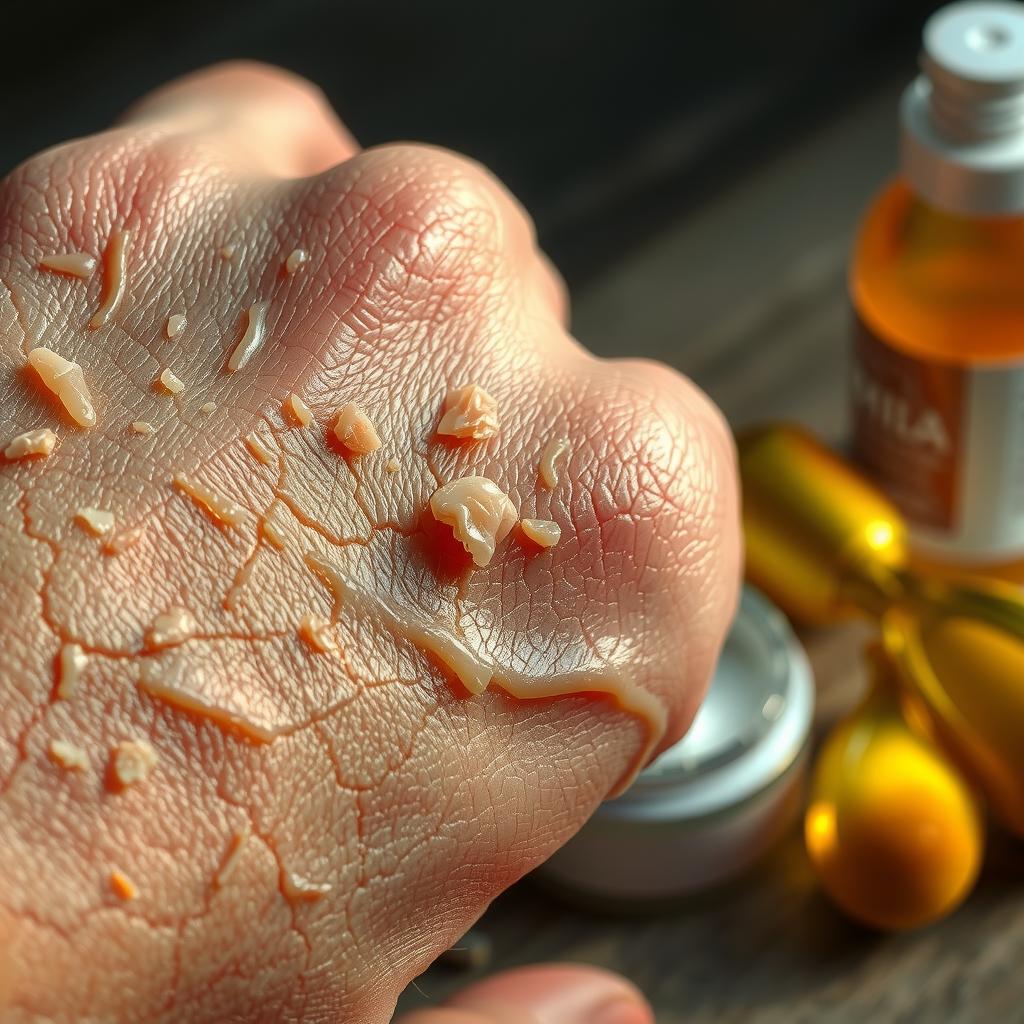In the vast world of skincare, many individuals often find themselves grappling with a common yet perplexing issue: distinguishing between dehydrated skin and dry skin. While both conditions can lead to discomfort and affect overall skin health, they stem from different underlying causes and require tailored approaches for effective care. This dilemma becomes especially prevalent as environmental factors, lifestyle choices, and age play crucial roles in our skin's hydration levels. Recognizing the signs of dehydration versus the symptoms of dryness is essential—not only for achieving optimal results from one’s skincare routine but also for ensuring long-term beauty and wellness.
This article aims to unravel the intricacies surrounding these two distinct states of skin. Readers will discover practical tips on how to accurately identify dryness or dehydration through various indicators such as texture, tightness, and flakiness. By understanding these key differences, individuals can make informed decisions regarding their skincare products—whether they need that extra boost in moisture or simply a richer emollient to combat moisture loss.
Moreover, integrating the right products into one's regimen plays a pivotal role in addressing specific needs effectively. For instance, while some may benefit from lightweight serums designed to replenish lost hydration levels without greasiness, others might find solace in thicker creams that offer substantial barrier protection against environmental aggressors.
As we delve deeper into identifying whether it is indeed dehydrated or dry skin that's causing concern—alongside actionable skincare tips—readers will be equipped with knowledge that empowers them to take charge of their skincare journey confidently. The distinction may seem subtle at first glance; however, understanding what lies beneath each condition not only fosters better product selection but also enhances overall satisfaction with one’s appearance—and who wouldn’t want healthy glowing skin? Let's explore this fascinating topic further!

Key Insights:
- Differentiating Skin Conditions: Understanding the Distinction Between Dehydrated and Dry Skin Recognizing whether one is dealing with dehydrated skin or dry skin is essential for effective skincare. While dehydrated skin may exhibit signs like tightness, dullness, and an increase in fine lines due to moisture loss, dry skin typically presents as rough or flaky. These distinct skin symptoms influence how individuals should approach their skincare routines. For example, products such as Aqua Boost Gel Cream can help address dehydration by attracting water into the epidermis.
- Tailoring Skincare Routines: The Importance of Customized Solutions To adequately address the varying needs of dehydrated versus dry skin, customized skincare strategies are crucial. Individuals with dehydrated skin might find relief using lightweight serums containing hyaluronic acid that effectively hydrate without adding excess oiliness on the surface. Conversely, those struggling with chronic dryness often require richer creams like Ultra Nourishing Moisture Balm, which contains nourishing ingredients such as shea butter to reinforce barrier function and combat persistent flakiness.
- Proactive Approaches: Enhancing Hydration Levels for Better Skin Health Implementing targeted solutions based on a thorough understanding of one's unique condition will lead to improved overall skin health. It’s vital for individuals to regularly assess their hydration levels and recognize early signs of dehydration in order to make informed product selections. Utilizing products specifically designed for either dehydrated or dry skin not only enhances hydration but also supports long-term maintenance of optimal moisture levels—empowering readers in their quest for vibrant and healthy complexions year-round.

Understanding Skin Types: The Distinction Between Dry and Dehydrated Skin
Recognizing the Unique Symptoms of Each Condition
When exploring skin health, it is essential to differentiate between dry skin and dehydrated skin, as they are often mistakenly thought to be the same. Both conditions exhibit distinct symptoms and characteristics that can significantly influence skincare choices. Dry skin is primarily a result of a lack of natural oils, leading to rough texture, flakiness, and an overall feeling of tightness. Individuals with dry skin may notice patches that itch or become irritated when exposed to harsh weather or certain skincare products. On the other hand, dehydrated skin refers to a deficiency in water content rather than oil. This condition can affect any skin type—oily, normal, or dry—and manifests through signs such as dullness, fine lines appearing more pronounced, and a lackluster complexion.
Understanding these differences allows individuals to tailor their skincare routines effectively. For instance, those with dry skin might benefit from rich creams containing ingredients like ceramides or shea butter that restore lipid barriers while locking in moisture for long-lasting hydration. In contrast, individuals experiencing dehydration should look for lightweight serums packed with hyaluronic acid or glycerin; these ingredients attract water into the upper layers of the epidermis without adding extra oiliness.
Identifying Your Skin Type: Key Indicators
Signs That Help Differentiate Between Conditions
To make informed decisions about one’s skincare regimen requires an awareness of various indicators associated with each condition. One common sign of dry skin is persistent roughness accompanied by visible flakes—often exacerbated during colder months when humidity levels drop dramatically. Additionally, this type often appears redder due to inflammation triggered by insufficient oil production.
Conversely, recognizing signs of dehydration involves observing how your complexion reacts throughout different times in your routine; if it feels taut after cleansing yet does not improve despite moisturizing efforts—a clear indication you might be suffering from low hydration levels rather than dryness itself! Including products formulated specifically for rebalancing moisture could provide relief here; consider incorporating refreshing mists enriched with aloe vera extract post-cleansing before applying heavier moisturizers.
Educating oneself on proper identification methods not only empowers consumers but also contributes toward achieving optimal results through appropriate treatments tailored uniquely for every individual’s needs—a vital step towards radiant-looking healthy skins!
Signs of Dehydration: Understanding Your Skin's Needs
Recognizing the Symptoms of Dryness and Dehydration
Dehydrated skin can often manifest through various skin symptoms, making it crucial for individuals to be aware of these key indicators. Common signs include tightness, flakiness, and a dull complexion that lacks vitality. In some cases, dehydration may also lead to more severe reactions such as redness, irritation, or even an increase in sensitivity. The loss of moisture from the skin can be attributed to environmental factors like low humidity levels or excessive sun exposure. Furthermore, lifestyle choices—such as inadequate water intake or using harsh skincare products—can exacerbate these conditions. When assessing one's hydration level, it is important to note that both internal and external factors affect how skin retains moisture; therefore recognizing early signs can help prevent further deterioration.
Understanding dryness requires a proactive approach towards treatment solutions tailored specifically for maintaining adequate hydration levels in the skin. Incorporating hydrating serums enriched with hyaluronic acid into daily routines can significantly improve moisture retention by attracting water molecules into the epidermis. Additionally, opting for moisturizers containing glycerin or ceramides will reinforce the skin barrier while preventing further moisture loss throughout the day. It is essential for individuals experiencing dry skin symptoms to adopt gentle cleansing practices that do not strip natural oils from their face; this includes avoiding overly hot showers and choosing pH-balanced cleansers designed for sensitive skins.
Treatment Strategies: Empowering Skin Health
Tailored Approaches to Combatting Dryness
To effectively combat dryness and ensure optimal skin health, implementing targeted strategies becomes paramount during skincare routines. For those struggling with dehydrated complexions, incorporating occlusive agents like shea butter or petrolatum can create a protective layer on top of the dermis which helps lock in essential hydration at night when cell repair functions are heightened. Furthermore, utilizing sheet masks infused with nourishing ingredients such as aloe vera extracts provides intense bursts of moisture while soothing irritated patches simultaneously—a perfect remedy after long days spent outdoors under UV exposure.
Moreover, being mindful about diet plays an equally significant role in supporting healthy-looking skin; consuming foods rich in omega-3 fatty acids—like salmon—and antioxidants found within berries will promote overall wellness internally while improving external appearance over time by reducing inflammation associated with chronic dryness issues too! Regularly drinking plenty of fluids contributes positively toward maintaining high hydration levels within our bodies aiding cellular function alongside revitalizing tired-looking faces almost instantly upon waking up each morning feeling refreshed instead!
Identifying Key Indicators: Listening to Your Skin
A Comprehensive Guide to Recognizing Dry Skin Symptoms
Recognizing specific signs indicating your own unique state regarding dehydration brings awareness leading toward informed decisions about personal care regimens ultimately promoting healthier glow seen externally! Notably observing texture changes (e.g., rough patches) should alert individuals they may need replenishing before progressing any further down potential damaging pathways affecting their complexions negatively over extended periods without intervention necessary soon enough!
Additionally keeping track if there’s increased frequency behind breakouts emerging unexpectedly could suggest underlying imbalances stemming directly due imbalance created whilst fighting off persistent irritants laced throughout everyday environments surrounding us all continuously—even indoors! Thus paying attention closely enables timely identification useful signals prompting immediate action providing assurance correct measures taken restoring balance restored back achieving desired goals everyone strives achieve prosperity amidst challenges faced constantly navigating life experiences together harmoniously onward moving forward confidently knowing ultimate results lie ahead awaiting just around corner patiently striving attain them collectively united effort-wise ensuring success arrives eventually surely undoubtedly guaranteed always worthwhile journey undertaken wholeheartedly along way!
Conclusion: Holistic Approach for Optimal Hydration
Emphasizing Long-term Solutions for Healthy Complexion
Ultimately achieving lasting results hinges upon embracing holistic methods integrating product usage habits paired skilfully combined fostering best outcomes possible yielding impressive transformations witnessed visibly across surface layers enhancing confidence boosting self-esteem experienced personally every individual involved process deeply valued appreciated too immensely cherished thoroughly enjoyed reverently respected henceforth continuing onwards flourishing beautifully indefinitely going forth boldly unafraid persevering tenaciously regardless obstacles encountered along paths traversed forevermore promising brighter future waits patiently eagerly beckoning inviting welcoming warmly lovingly embraced fully deserving utmost devotion dedication commitment unwavering resolve determined thrive magnificently beyond wildest aspirations envisioned ever dreamed beforehand simply wanting shine radiantly brightly illuminating world everywhere seen touching lives around inspired uplifted spirits reignited renewed hope sparked joyfulness reclaimed happiness felt again rediscovered one small act kindness shared freely influenced ripples endlessly spreading outward graciously giving back love compassion freely shared amongst fellow beings thriving community bonded eternally strengthened connections forged heartfelt journeys traveled together hand-in-hand nurturing souls intertwined inseparably connected loving heartbeats beating synchronously resonating harmoniously blissfully alive vibrantly shining bright stars lighting heavens above guiding paths illuminated shimmering softly gently reminding never lose sight dreams held dearly close hearts true essence purest forms encapsulated beauty reflected mirrors glowing reflections showcasing authenticity essence brimming boundless possibilities unfolding gracefully eternity infinite horizons stretching limitless farther than eyes behold
Understanding the Importance of Hydration in Skincare
Unlocking Optimal Moisture for Healthier Skin
Achieving optimal hydration is crucial for maintaining overall skin health, particularly when dealing with dehydrated skin or dry skin. The first step in a successful skincare strategy involves recognizing the signs of dehydration. Common symptoms include flakiness, tightness, and an uneven texture that can contribute to premature aging. To combat these issues effectively, incorporating targeted products like hyaluronic acid serums can work wonders. Hyaluronic acid is renowned for its ability to hold up to 1000 times its weight in water, making it a powerhouse ingredient that pulls moisture from the environment into the skin. This serum acts as a magnet for moisture and helps improve hydration levels significantly.
In addition to serums, rich creams fortified with ingredients such as glycerin and shea butter are essential allies in this quest for hydrated skin. These emollients not only seal in moisture but also create a protective barrier against environmental stressors that lead to moisture loss. When selecting products aimed at enhancing hydration levels, it's vital to look out for those labeled "non-comedogenic" so they won’t clog pores while providing necessary nourishment. Regular application of these hydrating products will help restore balance and promote supple, radiant skin.
Identifying Your Unique Skin Needs
Tailoring Hydration Strategies Based on Individuality
Every individual's skin has its unique needs based on factors like climate conditions and lifestyle choices; therefore, identifying dryness triggers plays an integral role in formulating effective skincare strategies. For instance, individuals living in arid environments may experience heightened moisture loss due to low humidity levels which exacerbate skin symptoms associated with dehydration. In such cases, integrating heavier moisturizers or overnight masks can provide additional support during sleep hours when the body naturally rejuvenates itself.
Moreover, understanding one's own skin health history is vital—those prone to conditions like eczema or psoriasis may require specialized formulations designed specifically for their sensitive needs while still focusing on increasing hydration levels efficiently. Education about different product types—including oil-based versus water-based formulations—enables consumers to make informed decisions tailored toward their specific situation without falling prey to generic advice.
Building A Comprehensive Routine
Layering Products Effectively for Maximum Absorption
Creating a comprehensive routine involves layering hydrating products methodically—a technique known as multi-layering—to optimize absorption and efficacy throughout each stage of your regimen. Start with lighter textures such as gels containing hyaluronic acid before applying richer creams or oils afterward; this ensures deeper penetration into the dermis where most benefits occur rather than just superficially coating outer layers.
It’s essential not only how one applies these various solutions but also when they do so: early morning routines should focus heavily on protection against external aggressors while evening regimens prioritize repair processes fueled by restorative elements found within nourishing night creams enriched with antioxidants capable of combating oxidative stress caused by daily exposure factors including UV rays and pollution—all contributing towards potential signs of dehydration.
Understanding how different components interact enhances users' confidence alongside visible results achieved through consistent practices over time leading ultimately towards healthier-looking complexions showcasing improved resilience against future irritants too!
Exploring Advanced Techniques
Enhancing Hydration Through Innovative Methods
As skincare evolves rapidly alongside scientific advancements within dermatology fields today there exist multiple innovative methods available designed explicitly around boosting overall hydration effectiveness beyond traditional topical applications alone! Emerging options include facial mists formulated precisely using electrolyte-rich waters; leveraging technologies such as LED therapy devices targeting collagen production thereby improving circulation whilst simultaneously introducing added nutrients deep beneath cutaneous layers further promoting enhanced cellular turnover rates aiding recovery processes drastically speeding up results observed post-application periods alike!
Furthermore utilizing professional treatments such as chemical peels infusing intense hydrators directly onto surface-level cells presents exciting opportunities additionally paving pathways toward new heights regarding achieving maximum retention capabilities ensuring prolonged effects following use sessions completed under expert supervision guaranteeing safety throughout all steps involved therein mitigating risks often associated otherwise faced untrained hands attempting similar feats independently without proper knowledge bases established beforehand clearly outlining intended outcomes sought after completion phases executed thoroughly!
With myriad options available today ranging from simple everyday practices combined smartly together aligned seamlessly addressing concerns head-on leads individuals closer fulfilling dreams desired attaining truly vibrant healthy glowing visages reflecting well-earned efforts placed diligently invested along respective journeys undertaken wholeheartedly determined never looking back again!
Frequently Asked Questions:
Q:How can I tell if my skin is dehydrated or just dry?
A:To distinguish between dehydrated skin and dry skin, individuals should pay attention to specific skin symptoms. Dehydrated skin often feels tight and may appear dull, even showing fine lines due to moisture loss, while still having some oiliness on the surface. On the other hand, dry skin is characterized by persistent flakiness and a rough texture. Assessing these characteristics can help in correctly identifying dryness.
Q:What types of products should I use for hydrated versus dry skin?
A:For addressing dehydration, skincare tips include incorporating products with hyaluronic acid, which effectively draws water into the epidermis. In contrast, those suffering from dry skin might benefit more from richer creams infused with nourishing ingredients like shea butter or ceramides that reinforce barrier function. Tailoring product selection based on these conditions can significantly enhance overall skin health.
Q:Are there lifestyle changes that can help improve hydration levels in my skin?
A:Yes, making certain lifestyle adjustments can greatly impact hydration levels. Drinking plenty of water throughout the day aids in combating signs of dehydration. Additionally, using a humidifier during drier months helps maintain moisture in the air, benefitting both dehydrated and dry skins alike. Incorporating these habits alongside appropriate skincare products will empower individuals to better manage their unique situations regarding moisture loss.

